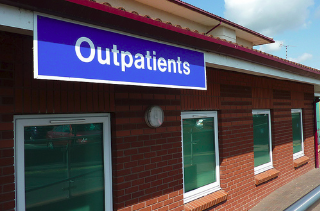For those seeking recovery there are various treatment programs available to choose from. One of the most common options is an Outpatient Program (OP). These types of programs typically allow greater flexibility during your treatment and recovery process than other programs, such as inpatient or long-term treatment.
But, what can you expect during a typical treatment program in an outpatient setting? We review here. Then, we invite your questions or comments about outpatient programs for addiction at the end.
How is outpatient treatment different?
Outpatient programs are a method of treatment geared toward individual therapy and created to be significantly less intensive and structure than Partial Hospitalization (PHP) or Intensive Outpatient (IOP) programs. While structure is based on the specific needs and motivations of each client, OP is treated as a form of continuing care rather than long-term treatment.
What are outpatient addiction treatment programs like?
Outpatient addiction programs vary in intensity, structure and duration. Everyone is different and progresses through their recovery at their own pace, so there is no standard length of time for each program. How long does outpatient addiction treatment last? Many programs run anywhere between one and three months, while extended programs are available if needed. NOTE: The length of treatment greatly depends on the progress and motivation of the client as well as recommendations and evaluations from addiction healthcare professionals.
There is a common misconception that outpatient treatment programs are the opposite of residential inpatient programs in regards to treatment intensity. However, the intensity of the work that you do in any type of addiction treatment will depend on how committed you are to recovery. Still, when it comes to the intensity of outpatient care, there is a large degree of variation. Some outpatient programs are designed with accessibility and flexibility in mind while others are a major commitment and would be difficult to complete while handling day-to-day responsibilities.
The bottom line is that time requirements in OPs usually require a minimum of 6-9 hours of treatment per week, up to 20+ hours. Some people stay in outpatient treatment for a few months, while others benefit from treatment for at least a year, or more.
What are the different outpatient care options available?
1. Intensive Outpatient Programs or IOP
IOP treatment is the in between level of care: it’s not as flexible as outpatient care, but not as intensive as PHP programs while still offering structured care. What’s included in IOP? These programs are designed to start allowing a sense of freedom and personal responsibility for clients, such as the opportunity to find employment or attend school during the hours they are not required to participate in therapy sessions and group meetings.
2. Partial Hospitalization or PHP
PHP programs are considered to be the most therapeutically intense with an extremely strict and structured schedule. Clients are usually required to meet with a counselor or participate in group or individual therapy sessions for five to seven hours a day, up to five days a week. While intense, the level of demand does vary from client to client and is determined by the healthcare professionals and addiction specialists that regularly interact with them.
How do you choose an intensity of care?
With any treatment program, the level of care that is chosen for your case is dependent on the level of addiction you’re struggling with and any needs you may have. It’s common amongst treatment facilities to offer a series of treatment stages, where you have to successfully complete one level of care to graduate into lower level programs.
Mainly, as you work towards sobriety and eventually a life in addiction recovery, your program becomes less intense, has a more flexible structure, and requires less structured involvement. Some facilities strictly offer and specialize in outpatient addiction treatment for those struggling with less severe addictions. Such facilities offer their services to addicts who don’t require long-term care, or individuals who are transitioning out of an inpatient treatment program.
Often, in this phase of care individuals are required to seek out their own therapists, psychiatrists, or psychologists, who specialize in addiction treatment, to work with them. Furthermore, they are able to spend a majority of their time on different goals, such as:
- working towards a stable career
- mending relationships
- working their steps
- rebuilding their newfound lives
How can you find low cost outpatient programs?
While far less expensive than residential inpatient care, outpatient programs can still be expensive. Depending on the duration of the program and the type of facility, addiction treatment can cost thousands of dollars.
Here’s what can help you pay for treatment:
1. Health Insurance: If you currently have health insurance, you can call the telephone number on the back of your issued insurance card to receive information on mental health and substance abuse coverage for your plan. You can also find out if there will be any additional costs (i.e. deductibles or co-payments).
2. Sliding Fee Scale or Reduced Payment: If you do not have health insurance and cannot pay a lump sum out-of-pocket, search for treatment programs that offer sliding fee scale or reduced payment plans. You can find these centers through SAMHSA’s helpline number (1-800-662-HELP). Make sure you ask about affordable treatment options in your area.
3. Other Funding Sources: You can use your own resources such as savings accounts, life insurance policies, and retirement funds to fund treatment. Loved ones may also be willing to support you through treatment and lend you the money for the program (and later you will need to pay them back). Also, you may be able to get a personal loan from a bank.
Outpatient treatment questions
Are you or a loved one considering outpatient treatment to help you with addiction and substance use? Do you have any additional questions that you’d like to learn the answers to? We welcome you to post them in the designated section below, and we’ll try to respond to you personally and promptly.









Related Posts